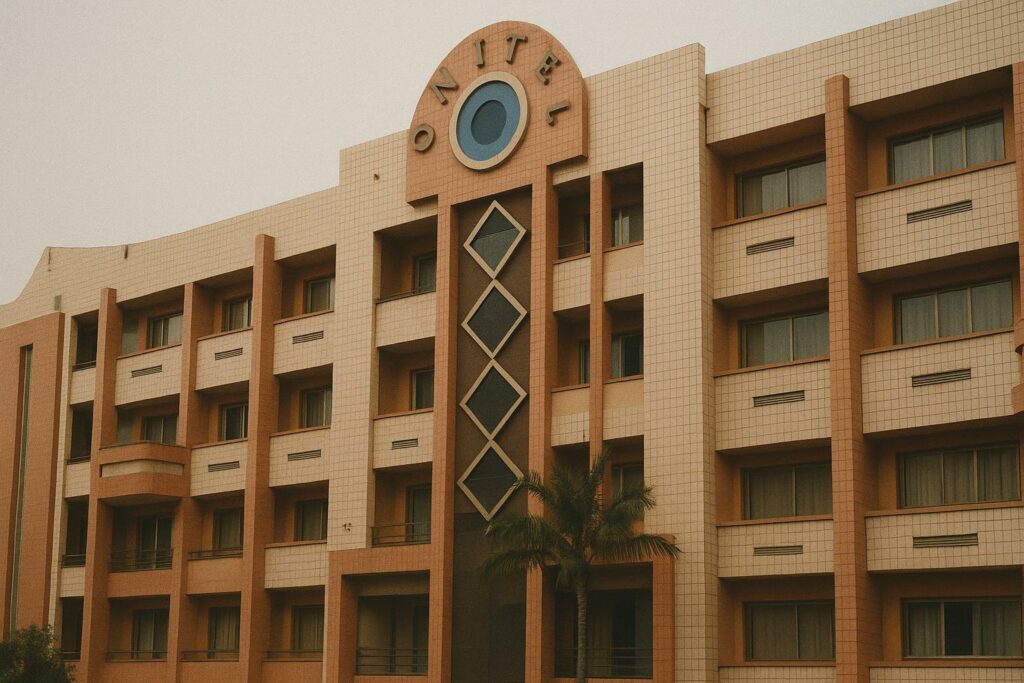Smaller Cheques, Louder Claims of Stability
Shareholders of the National Office of Telecommunications of Burkina Faso (ONATEL S.A.) woke up to a mixed message this summer: the company’s board approved a 12.887-billion-FCFA net dividend for the 2024 fiscal year, to be distributed on 21 July 2025. At 189.52 FCFA per share, that cheque is 29 percent lighter than last year’s 266.44 FCFA, even as the operator proclaimed “solid fundamentals in a challenging macroeconomic environment” (ONATEL 2024 Annual Report). The contradiction is more apparent than real, executives argue, citing the need to preserve cash for spectrum renewals and 4G densification.
Earnings Resilience Behind the Curtain of Austerity
ONATEL’s net profit edged up 1.61 percent to 21.471 billion FCFA, while revenue improved by 2 percent to 141.841 billion FCFA. These figures, modest on any global exchange, acquire significance on the Bourse Régionale des Valeurs Mobilières, where defensive growth is not taken for granted. Profitability held despite a 1.56 percent dip in value added, in part because operating expenses were kept flat, analysts at Ecobank Capital contend (interview, 26 June 2025). The company also shaved its financing costs, reducing the financial deficit from 3.042 to 2.957 billion FCFA—a small but symbolically important victory in a high-rate environment.
Investor Math: Yield, Risk and the Sahel Premium
At a market price of 2 600 FCFA, ONATEL’s dividend yield slips to 7.28 percent, barely above the regional telecom average yet still attractive relative to Burkinabè sovereign paper. Portfolio managers accustomed to the so-called “Sahel risk premium” note that ONATEL’s payout was on a glide path well before the latest coup-driven volatility bracketed the region (Reuters, 14 May 2025). What unnerves some institutional investors is not the lower yield per se but what it signals: potential acceleration of capital expenditure at a time when foreign-currency access is tightening.
Strategic Cash Retention or Implicit Statecraft?
Government officials, who indirectly control 23 percent of ONATEL through a state holding, view the dividend cut as a prudent buffer rather than a breach of the social contract. In a closed-door briefing, a senior official at the Ministry of Digital Economy described the policy as “aligning shareholder expectations with national connectivity targets”. Privately, diplomats in Ouagadougou interpret the move as an attempt to husband resources before a likely 5G licence auction and to navigate sanctions risk should regional tensions flare again. The company, majority-owned by Maroc Telecom (itself 53 percent controlled by Etisalat of the UAE), must also consider intra-group cash flows and transfer-pricing scrutiny from both Rabat and Abu Dhabi regulators.
Market Optics on the BRVM: Liquidity versus Signalling
ONATEL’s share price has drifted sideways since the announcement, suggesting neither panic nor exuberance. The stock’s free float remains thin—roughly 12 percent—limiting price discovery. Nonetheless, trading desks in Abidjan report a pick-up in cross-border interest from Senegalese pension funds seeking inflation-linked returns. Standard Chartered’s West Africa strategist observes that “dividend adjustments in frontier markets are often less about immediate cash and more about signalling discipline to multilaterals” (conversation, 1 July 2025). In that sense, a modest cut may reassure the IMF, which is nudging Sahel governments to restrain quasi-fiscal drains on state-linked enterprises.
Digital Sovereignty and the Next Investment Cycle
Looking forward, ONATEL confronts a dilemma shared by many incumbents: how to reconcile shareholder remuneration with the capital intensity of digital transformation. The Burkinabè regulator, ARCEP, is tightening quality-of-service metrics and preparing spectrum re-farm guidelines, both of which imply heavier spending. Concurrently, Ouagadougou’s security exigencies highlight the strategic nature of telecom networks, raising the spectre of additional compliance costs. Whether the 2024 dividend trim is a one-off adjustment or the harbinger of a more frugal distribution policy will hinge on the company’s ability to convert incremental revenue into free cash flow resilient to both political shocks and currency pressures.
A Measured Bet on Frontier Stability
For diplomats monitoring Burkina Faso’s investment climate, ONATEL’s cautious stance offers a textbook case of frontier-market equilibrium: reward investors enough to keep capital engaged, yet retain sufficient liquidity to weather turbulence and upgrade critical infrastructure. Should the operator manage that balance, the 2024 dividend, slimmer though it is, may be remembered less for the cash foregone than for the strategic runway it purchased.

